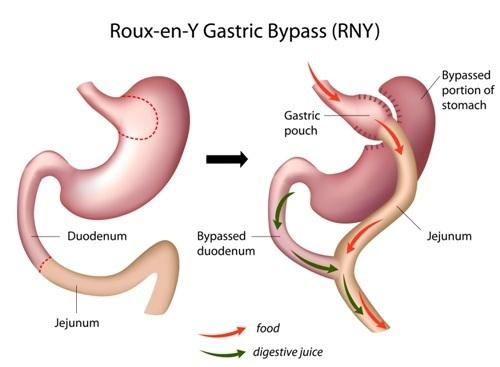Bariatric (weight loss) surgery works. A severely obese person (BMI > 40) might lose 50 percent of his or her excess body fat in the first year after such surgery. One question that has lingered for decades is, how long do such effects last? Do people gain back the weight that they've lost and, if so, how quickly does that happen?
These are important issues — the surgery is expensive, and in some types in which the gastrointestinal tract is substantially rearranged, a number of side effects can occur. Some are minimal, but others, such as nutritional deficiencies, will have to be dealt with for the rest of the person's life.
A new study reported in JAMA Surgery investigates the long-term durability of weight loss after bariatric surgery. Led by Dr. Matther L. Maciejewski from the Durham Veterans Affairs Medical Center in Durham, NC, the researchers used data on mostly (over 73 percent) male veterans from the federal Veterans Administration. Participants' BMIs on average ranged from 43 to 48, putting them in the extremely obese category. They underwent one of 3 types of bariatric surgery1: about 1800 had Roux-en-Y gastric bypass (RYGB); about 250 had adjustable gastric banding (AGB); about 380 had Sleeve gastrectomy (SG); and about 5300 served as weight-matched non-operated controls. The men in each group averaged between 52 and 53 years old.
Four years post-surgery, all the different surgeries resulted in a loss of initial body weights: 28 percent in the RYGB group, 11 percent in the AGB group, and 18 percent in the SG group, indicating a substantially larger loss with RYGB.
By the 10th year post-surgery, the RYGB group lost 21 percent more of their baseline weight than did the non-surgical control group: a difference that was statistically significant — the RYGB group had lost nearly 29 percent of their initial body weight at that time, while the control group lost only about 7 percent
These results are important because, first they substantiate earlier findings that RYGB surgeries are more effective than other types of bariatric procedures, and that such conclusions hold for men as well as women — much of the earlier work had been done on mostly female populations.




